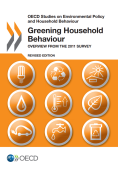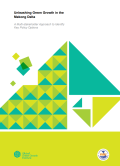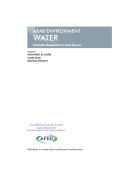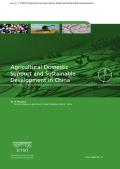
Payments for Ecosystem Services (PES) describes the situation where the user of an environmental service, such as water purification, pays the landowners who provide that service. For PES to exist, there must be a clearly defined user and supplier, as well as a number of other necessary conditions, which are defined in this document using a summary of current sources. Particular attention is paid to how these conditions currently obtain within the UNECE region. The range of forest environment services is explored through fourteen detailed case studies, which examine best practice in promoting PES. Political and public relations implications of PES are discussed at length, and recommendations include the need for clarity about where PES may be a useful tool in moving towards a green economy and where other methods may be more appropriate.

Developing growth strategies that promote greener lifestyles requires a good understanding of what factors affect people’s behaviour towards the environment. Recent OECD work based on periodic surveys of more than 10, 000 households across a number of countries and areas represents a breakthrough by providing a common framework to collect unique empirical evidence for better policy design.
This publication presents responses from the most recent round of the OECD survey implemented in 2011 in 5 areas (energy, food, transport, waste and water) and 11 countries: Australia, Canada, Chile, France, Israel, Japan, Korea, the Netherlands, Spain, Sweden and Switzerland.
Analysis comparing the data across countries, policy conditions and households’ characteristics reveals which measures most effectively change behaviour. Each round of the survey also allows to track changes over time and to explore new emerging issues.

This Scoping Report was produced through cooperation between the Viet Nam National Mekong Committee (VNMC) and the Global Green Growth Institute (GGGI) in reflecting a shared understanding that improved water resource management was considered as the key to sustainable development. The report provides a wealth of information to capture the link between water and economic growth in the Mekong Delta context and identifies the policy options which would support green growth in the Delta, from a conceptual viewpoint. It also provides an assessment tool which can prioritize green growth options and facilitate preparatory works for green growth policies in the Mekong Delta.

This report is designed to contribute to the discourse on the sustainable management of water resources in the Arab world and provides critical understanding of water in the region without being overly technical or academic in the nature. The unifying theme is presenting reforms in policies and management to develop a sustainable water sector in Arab countries. Case studies, with stories of successes and failures, are highlighted to disseminate learning. The report contributes to the ongoing dialogue on the future of water and catalyses institutional reforms leading to determined action for sustainable water policies in Arab countries.

